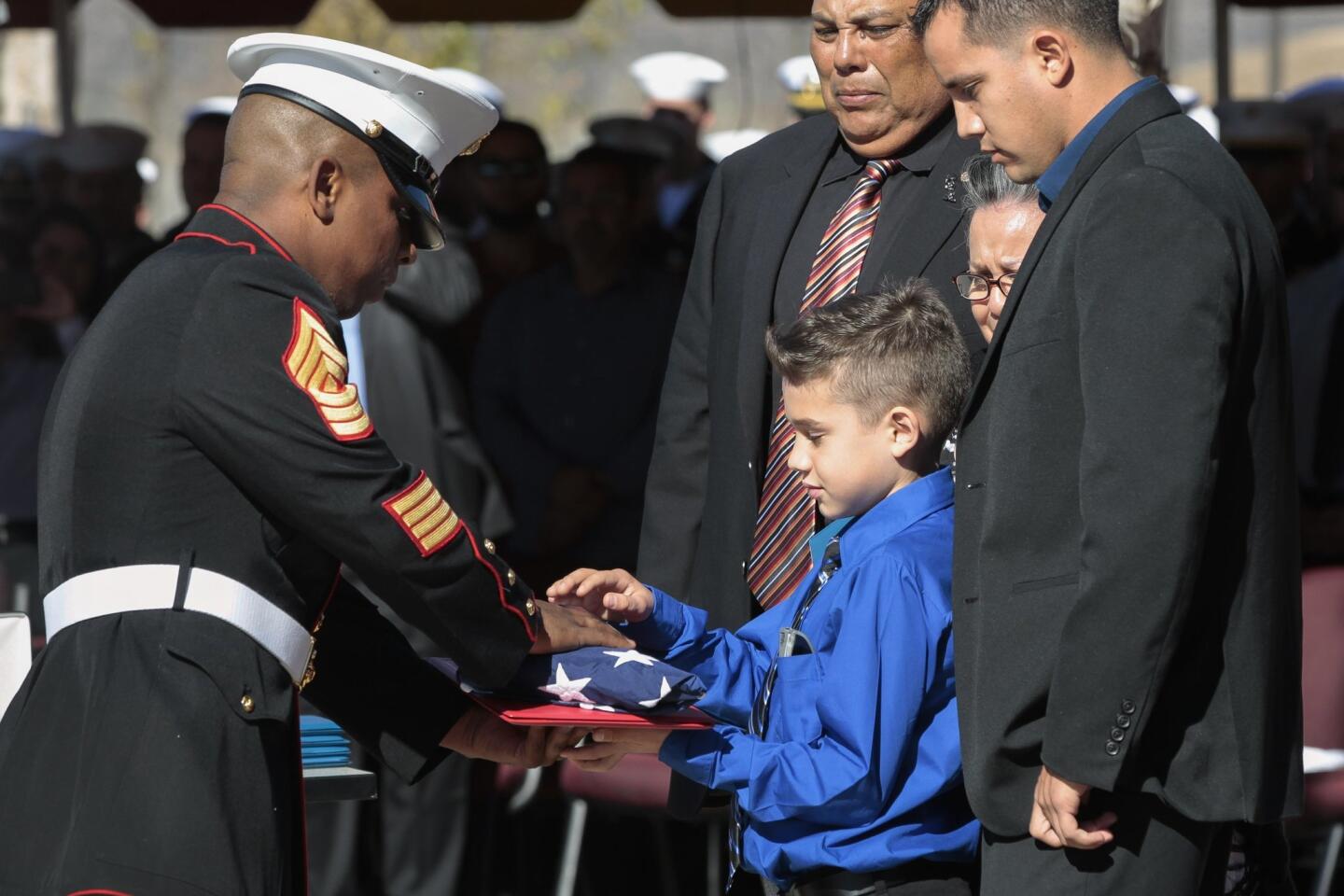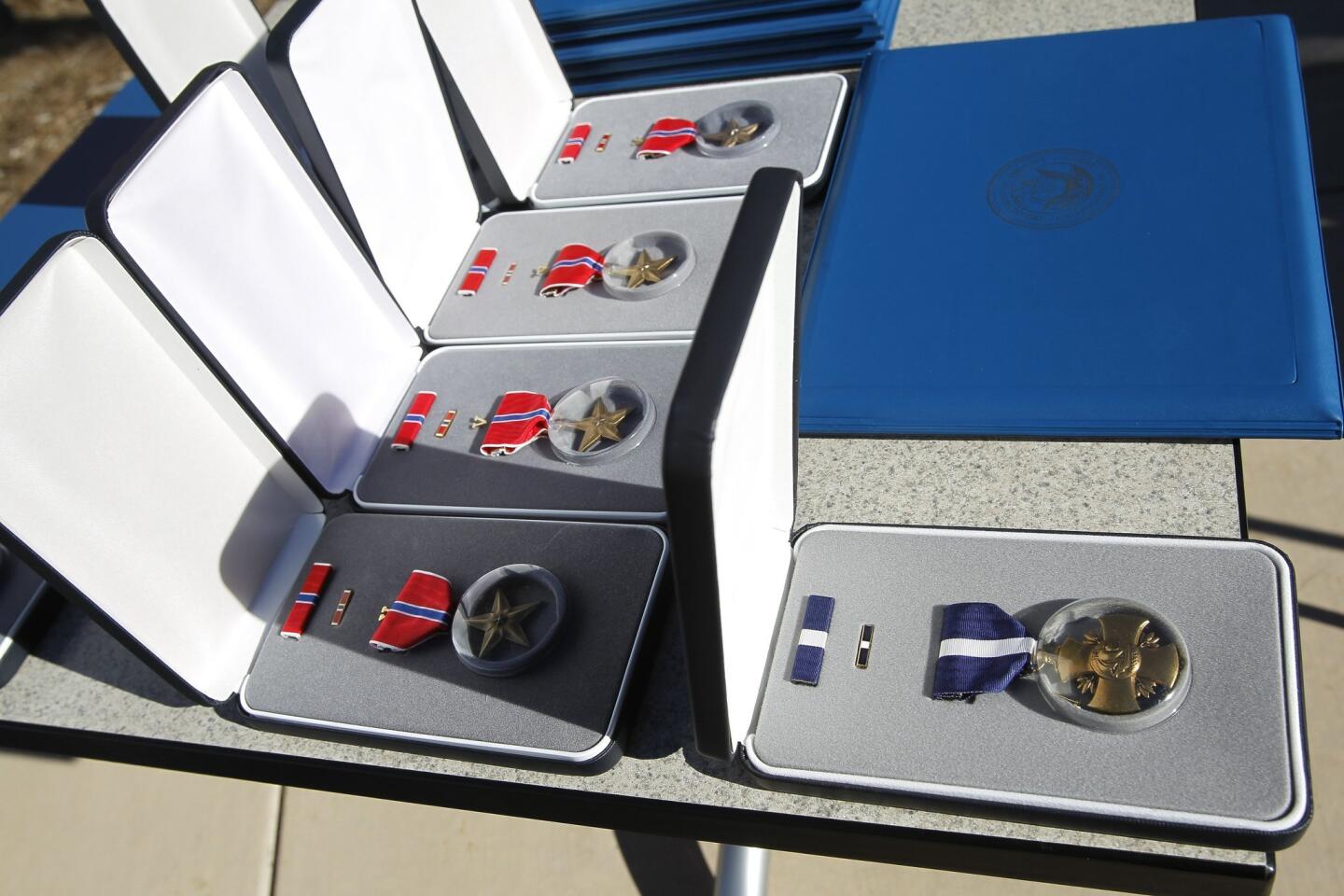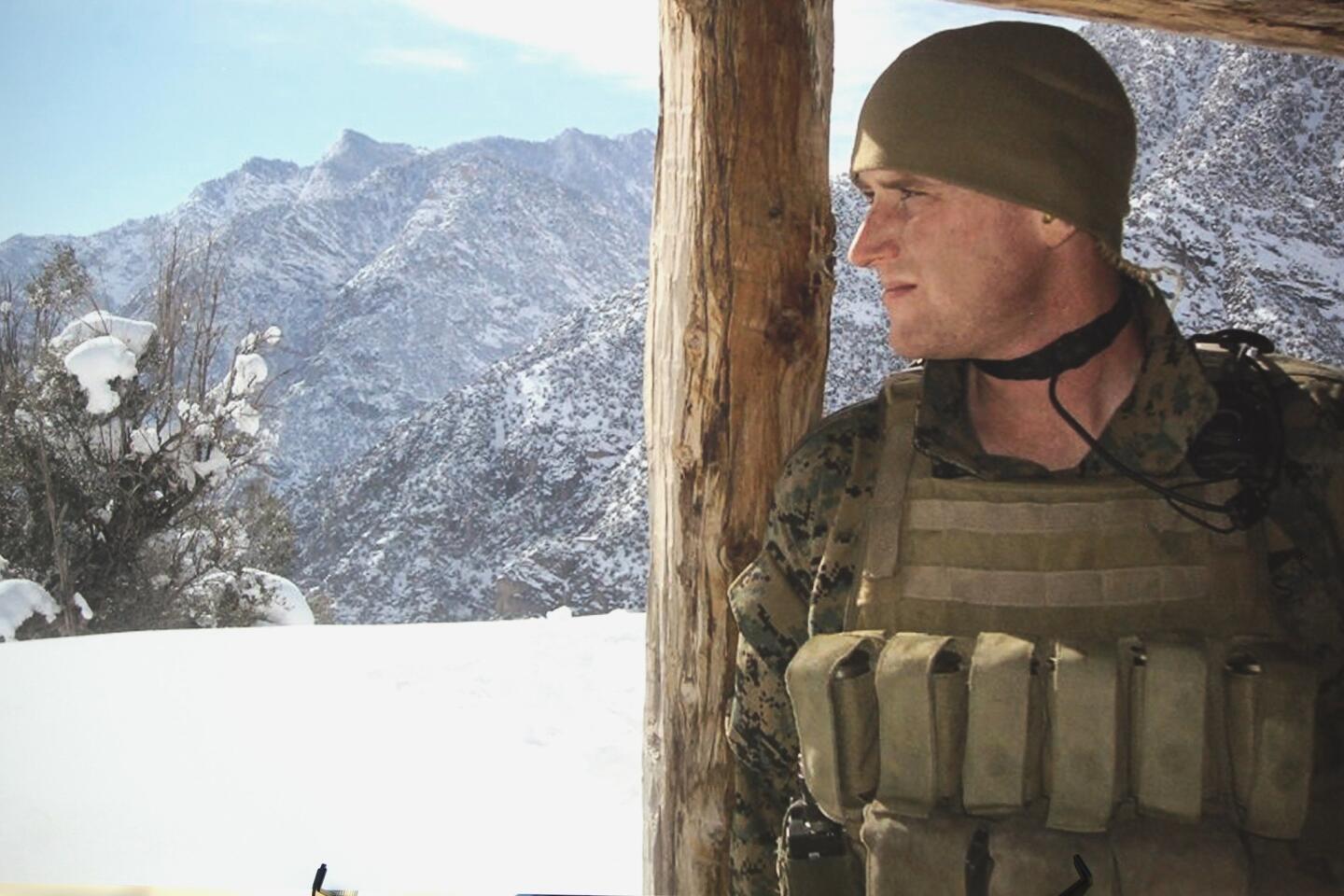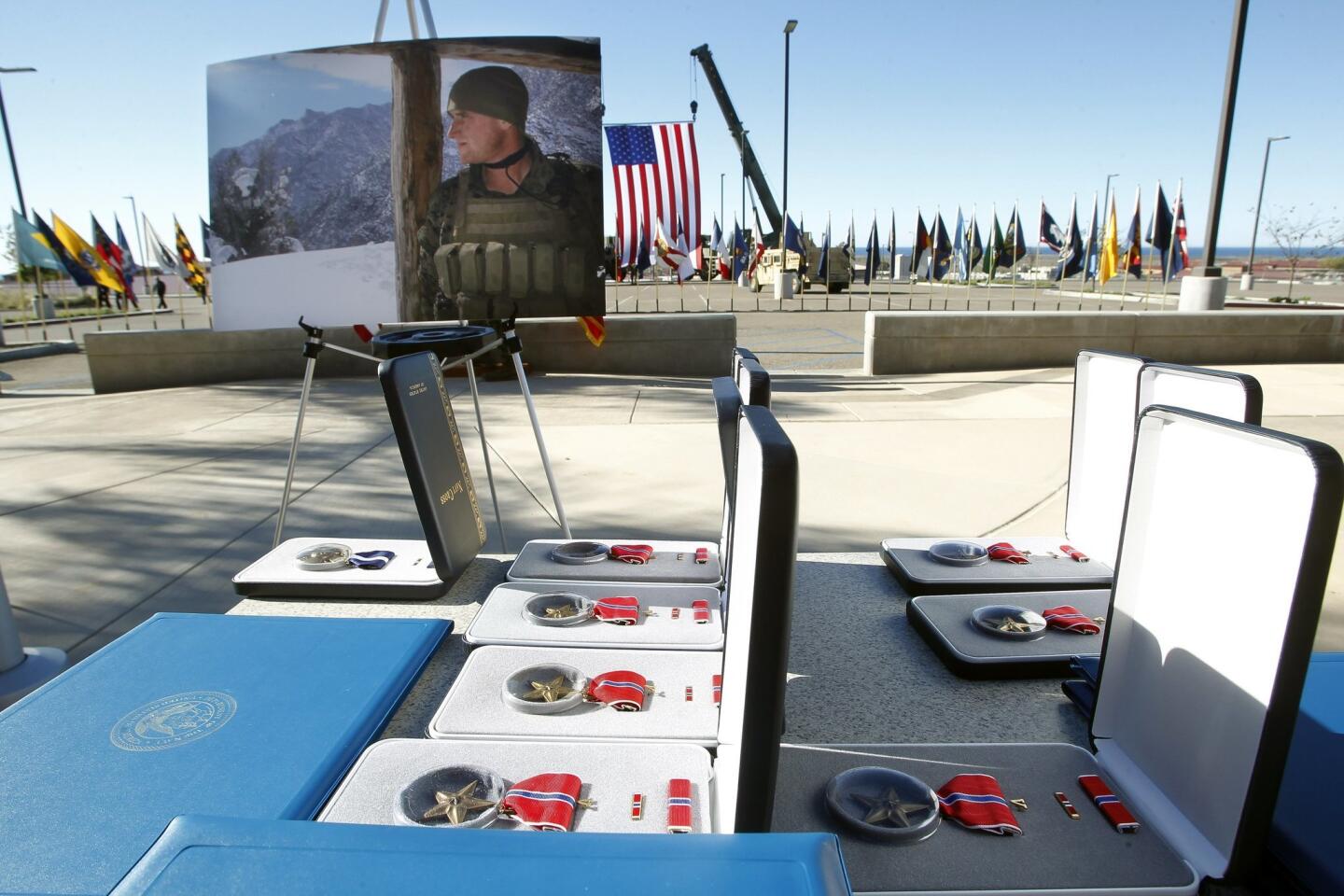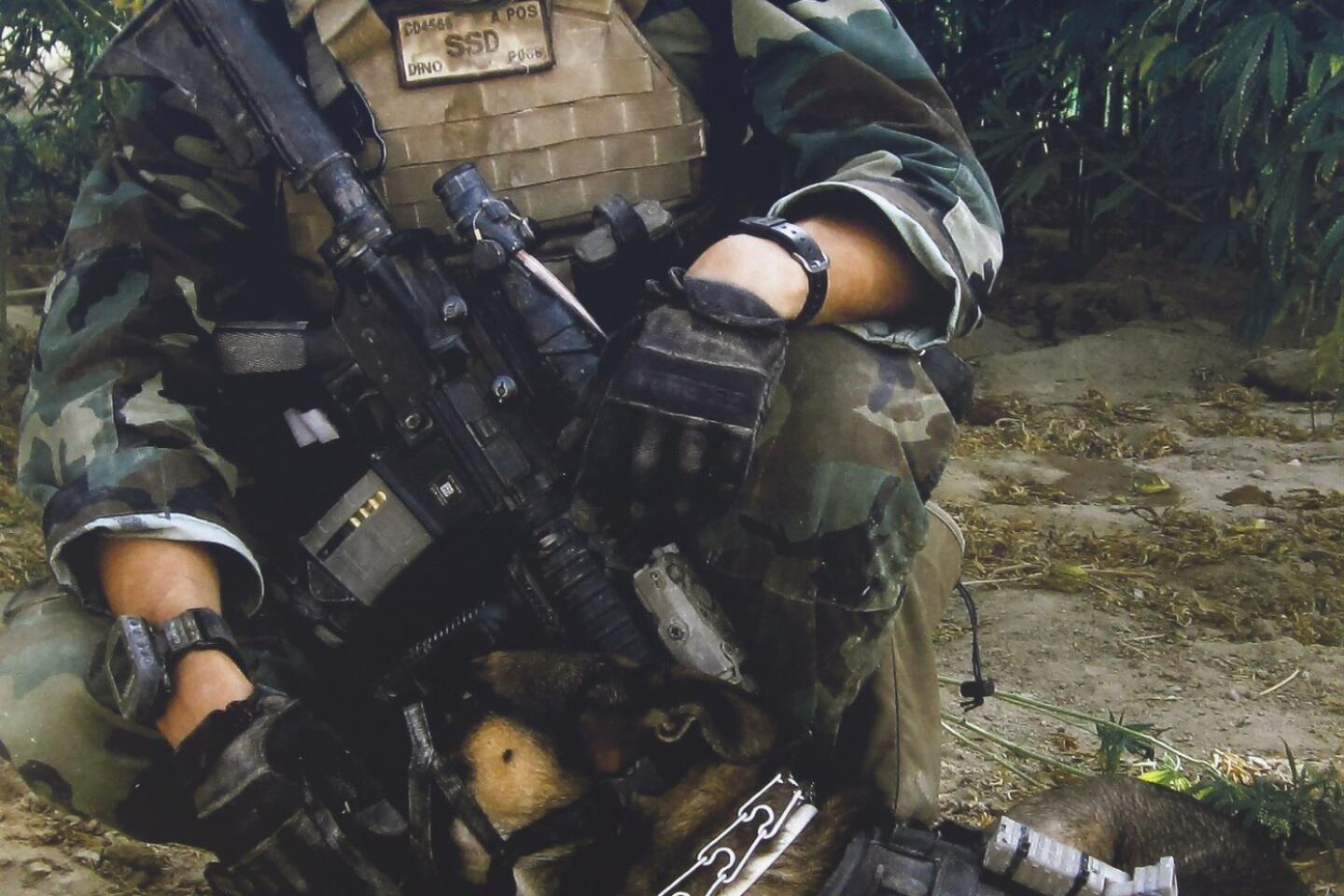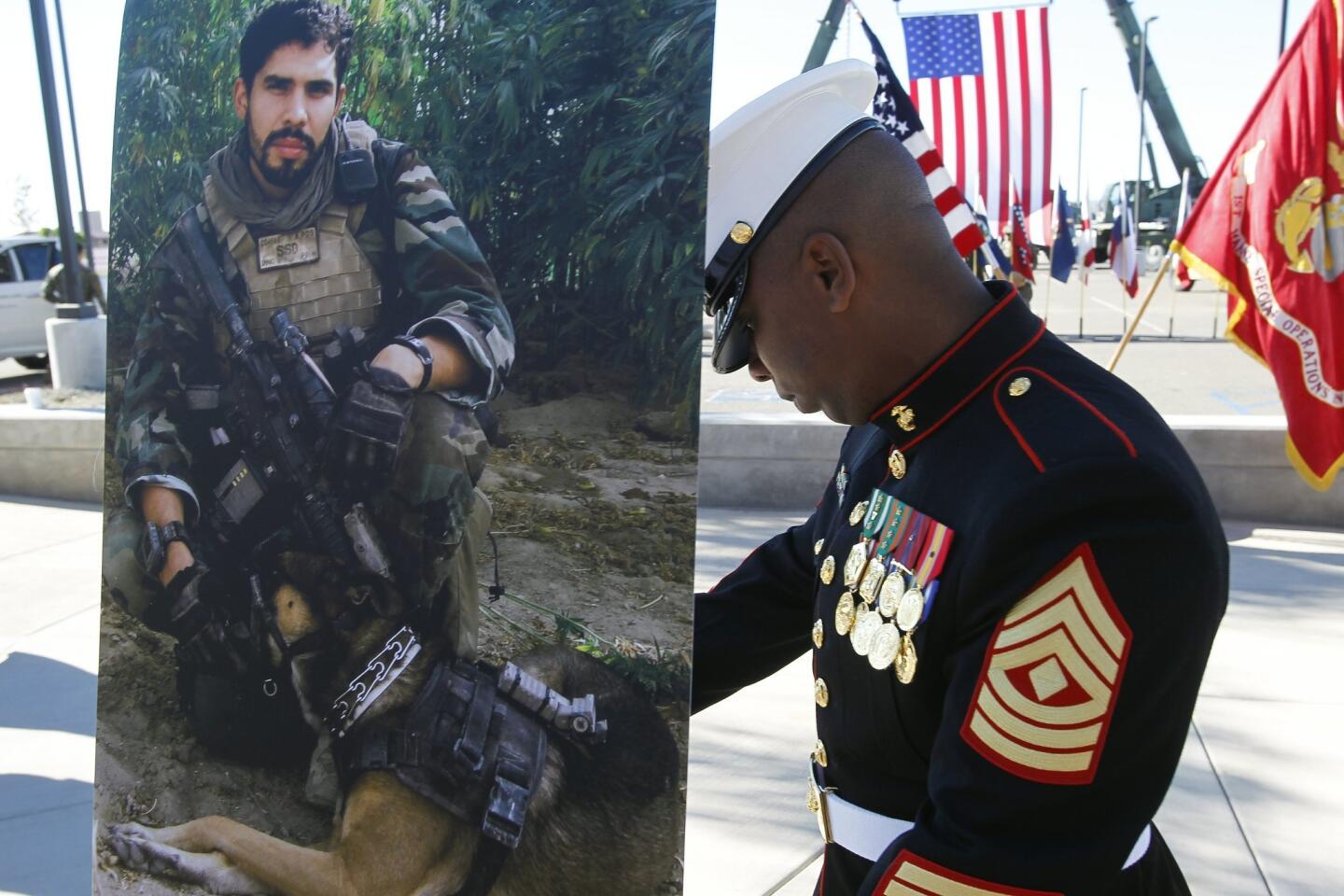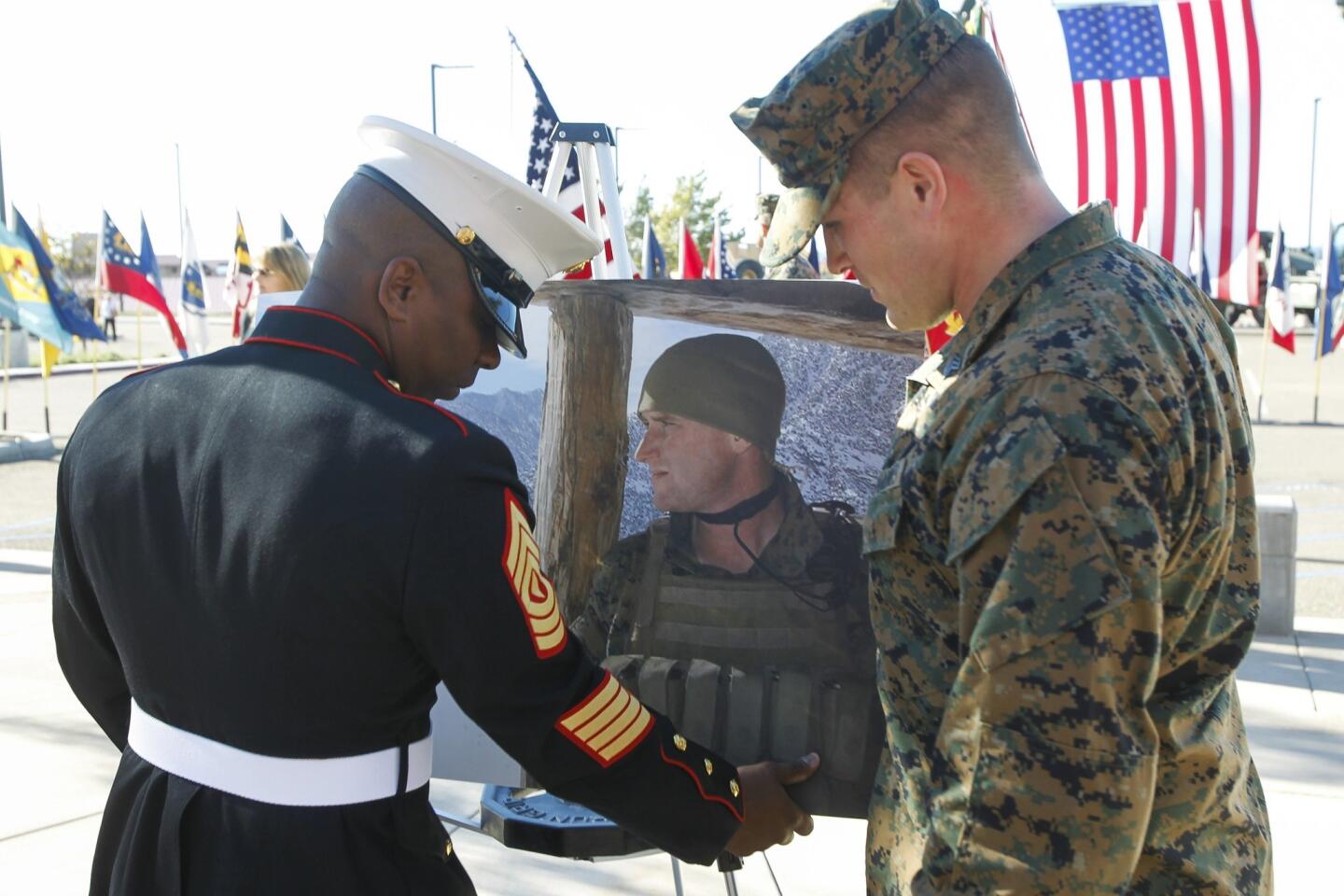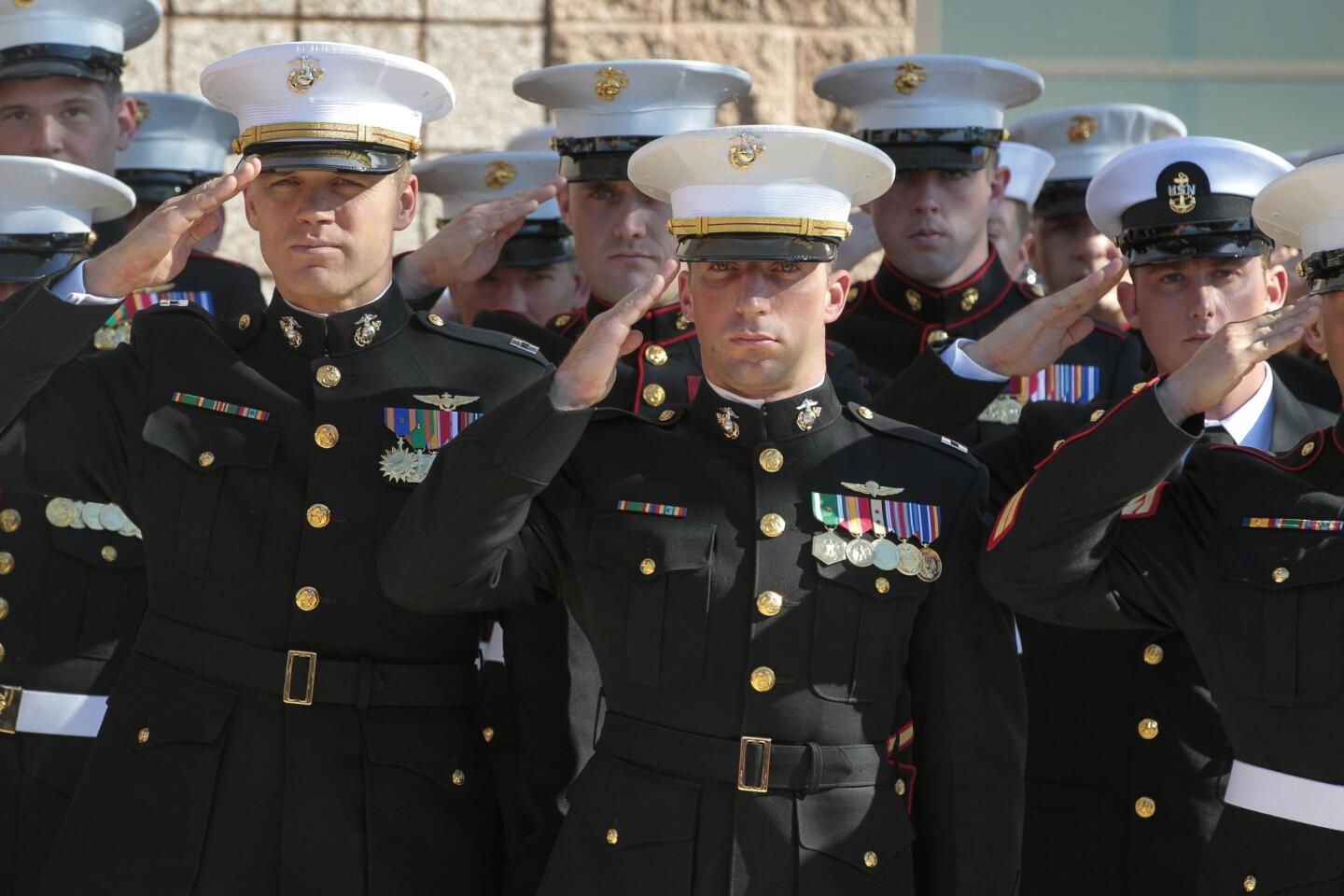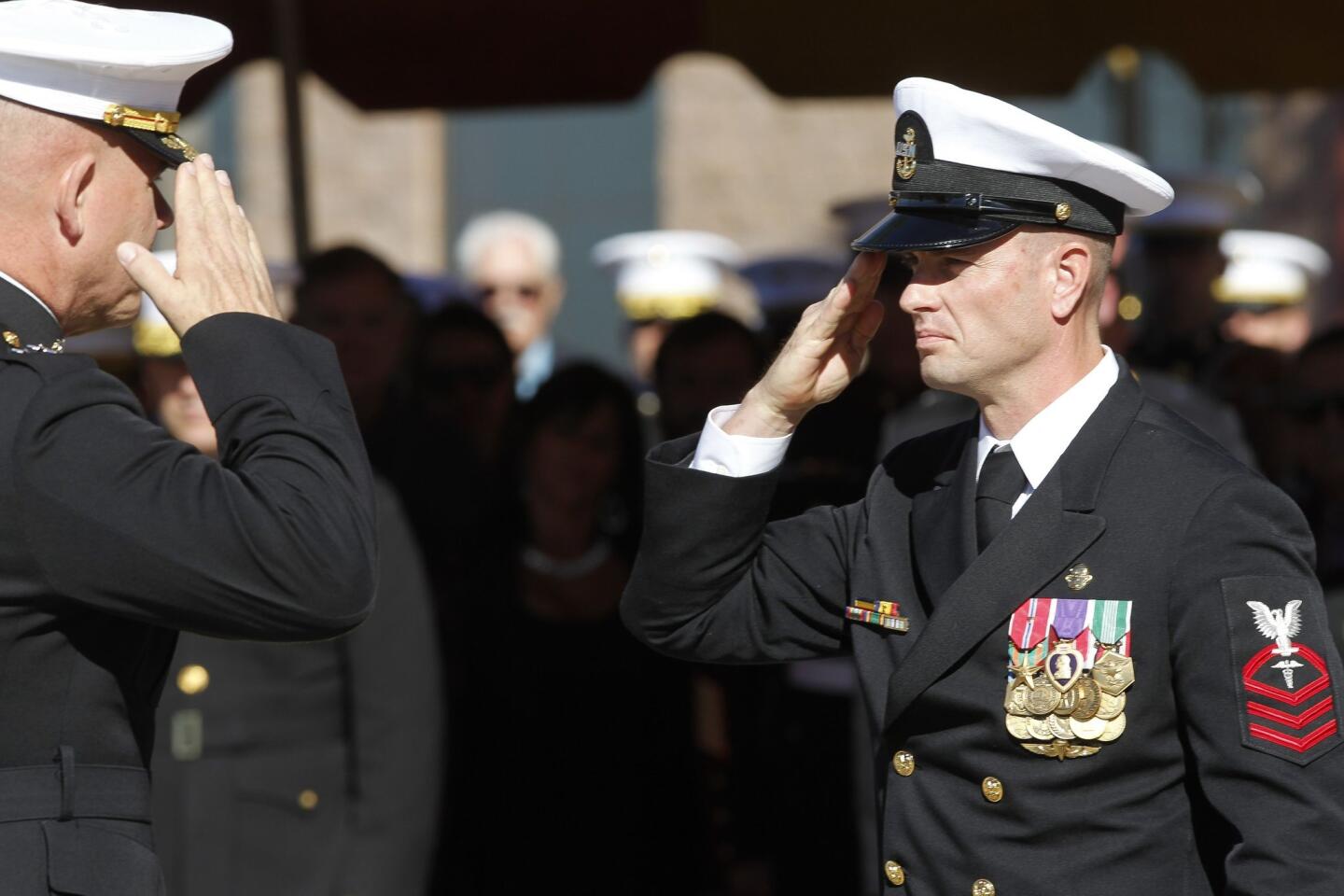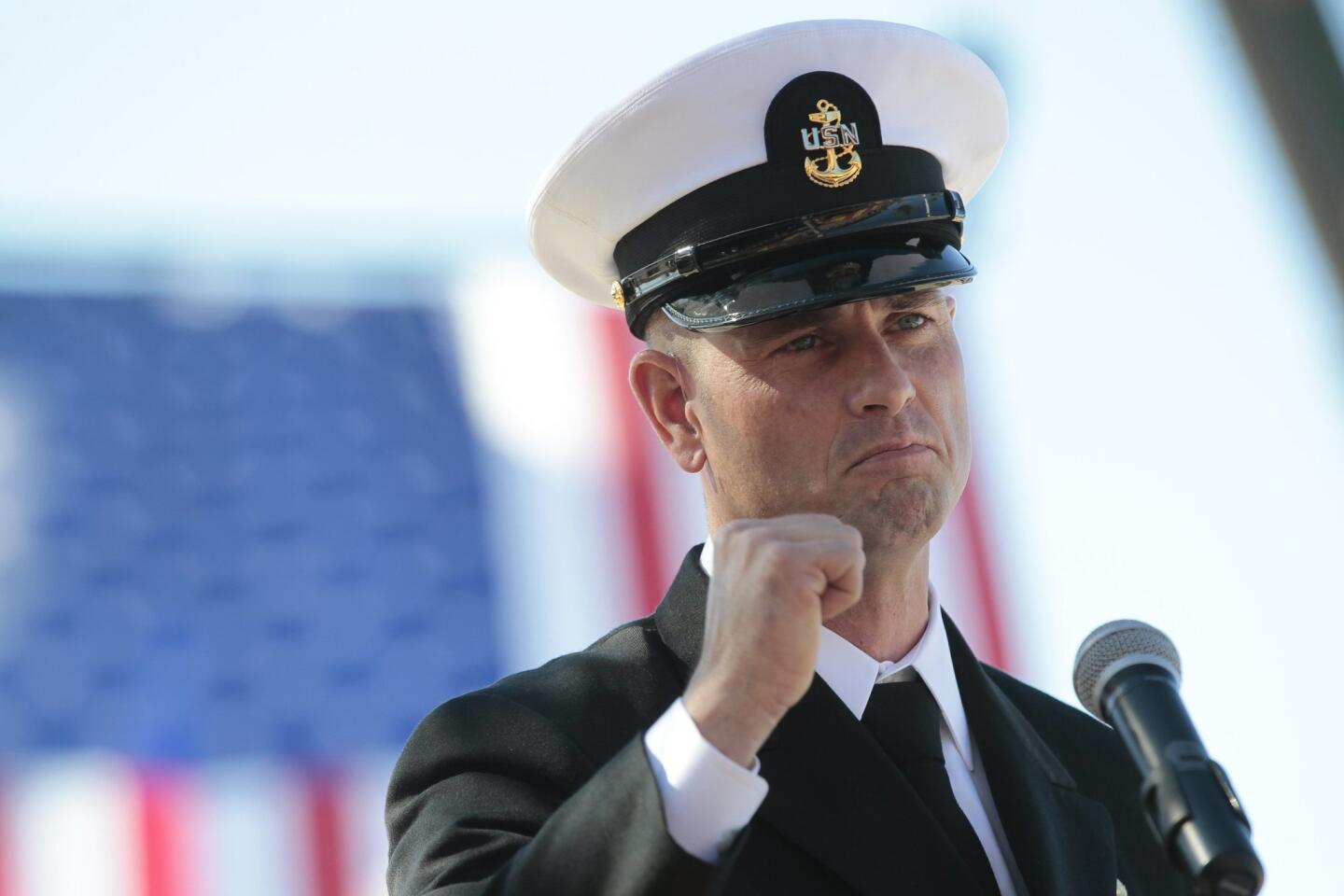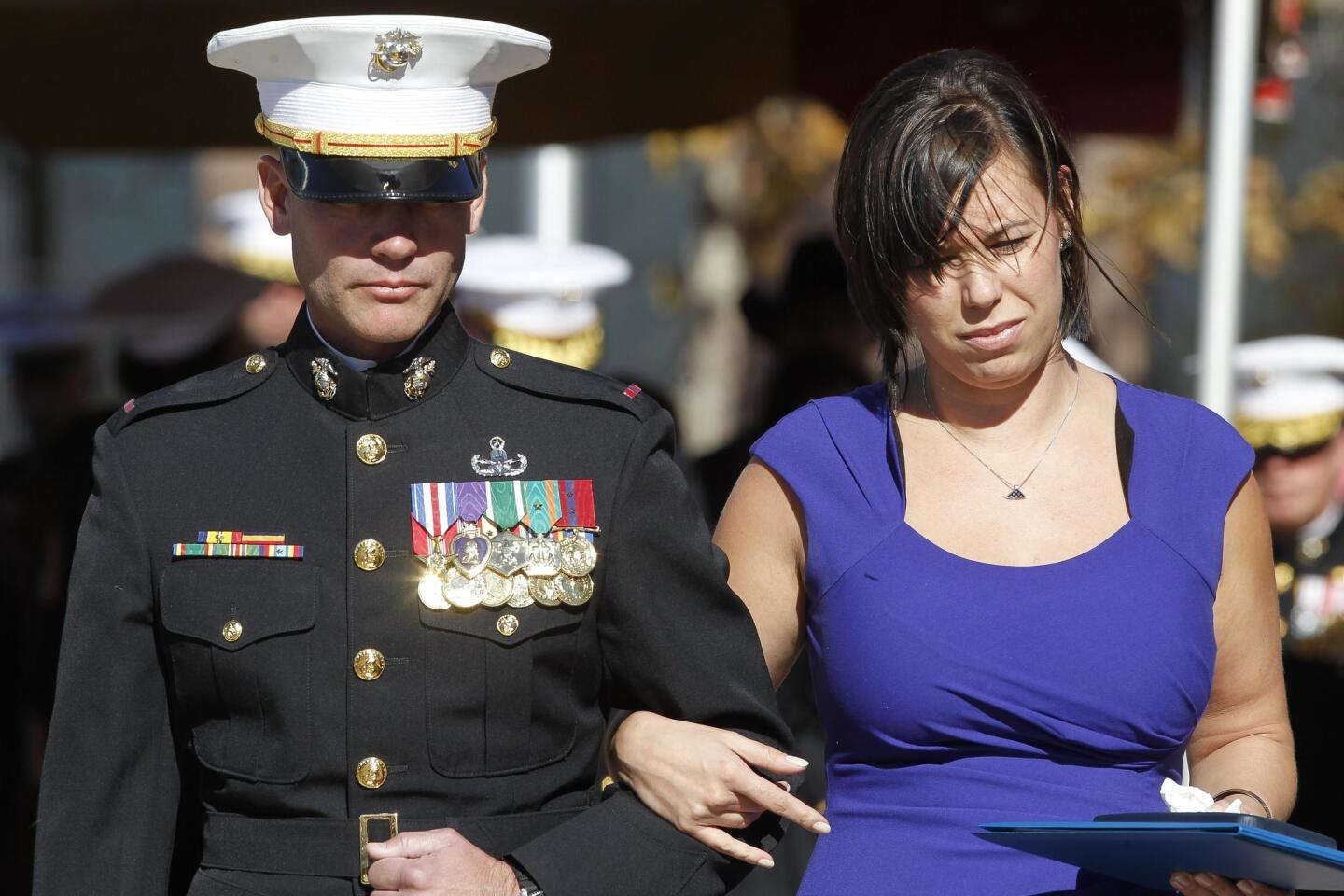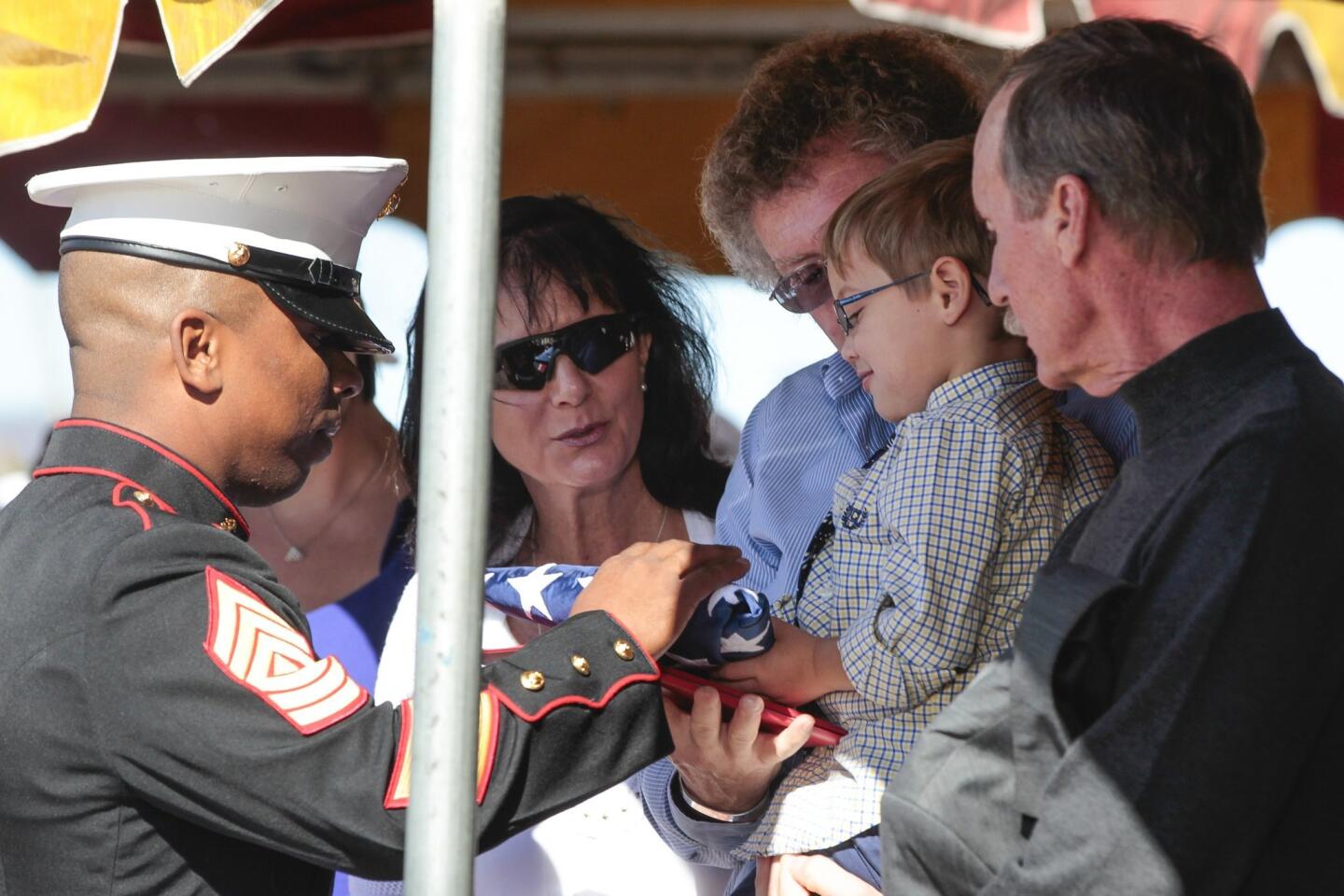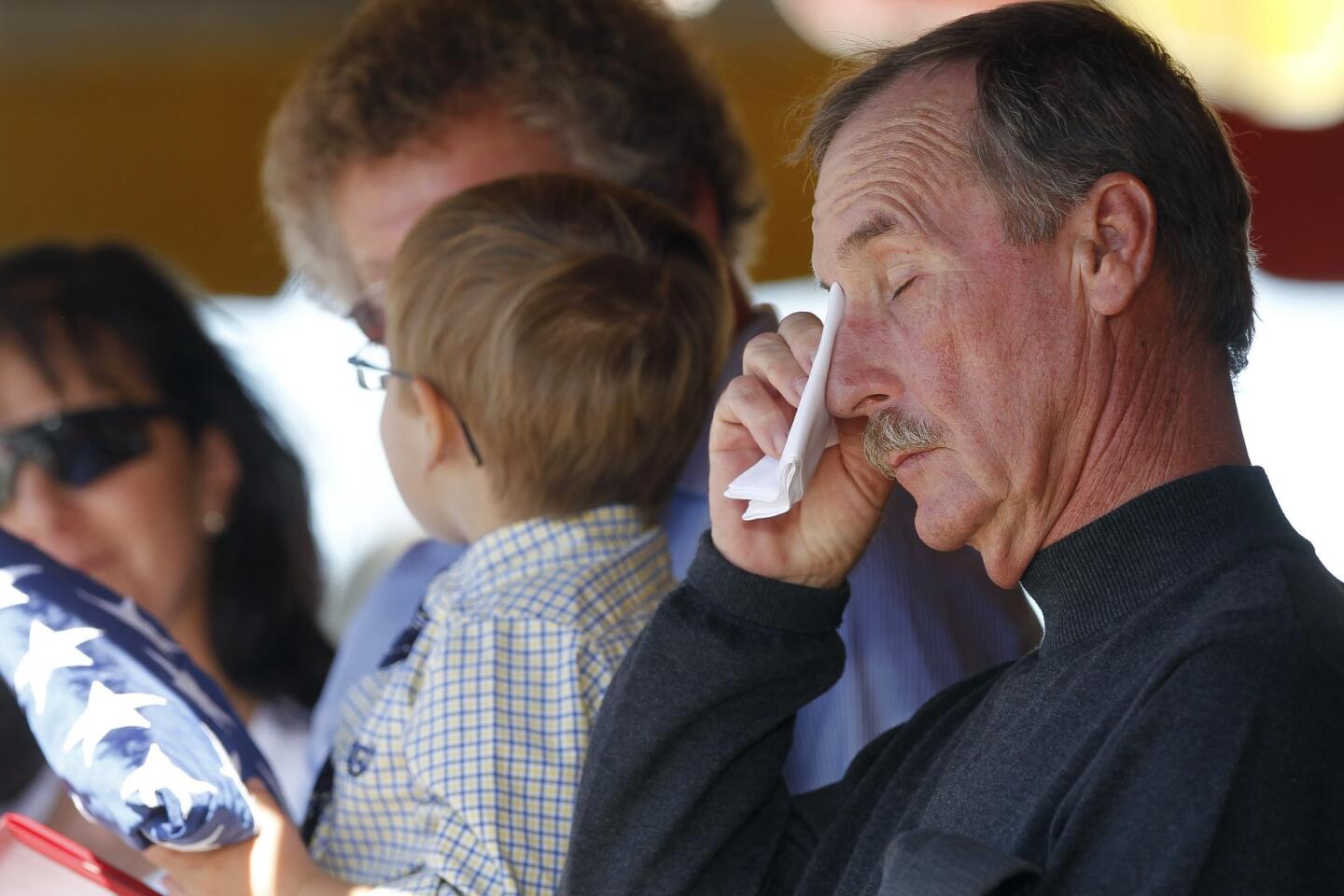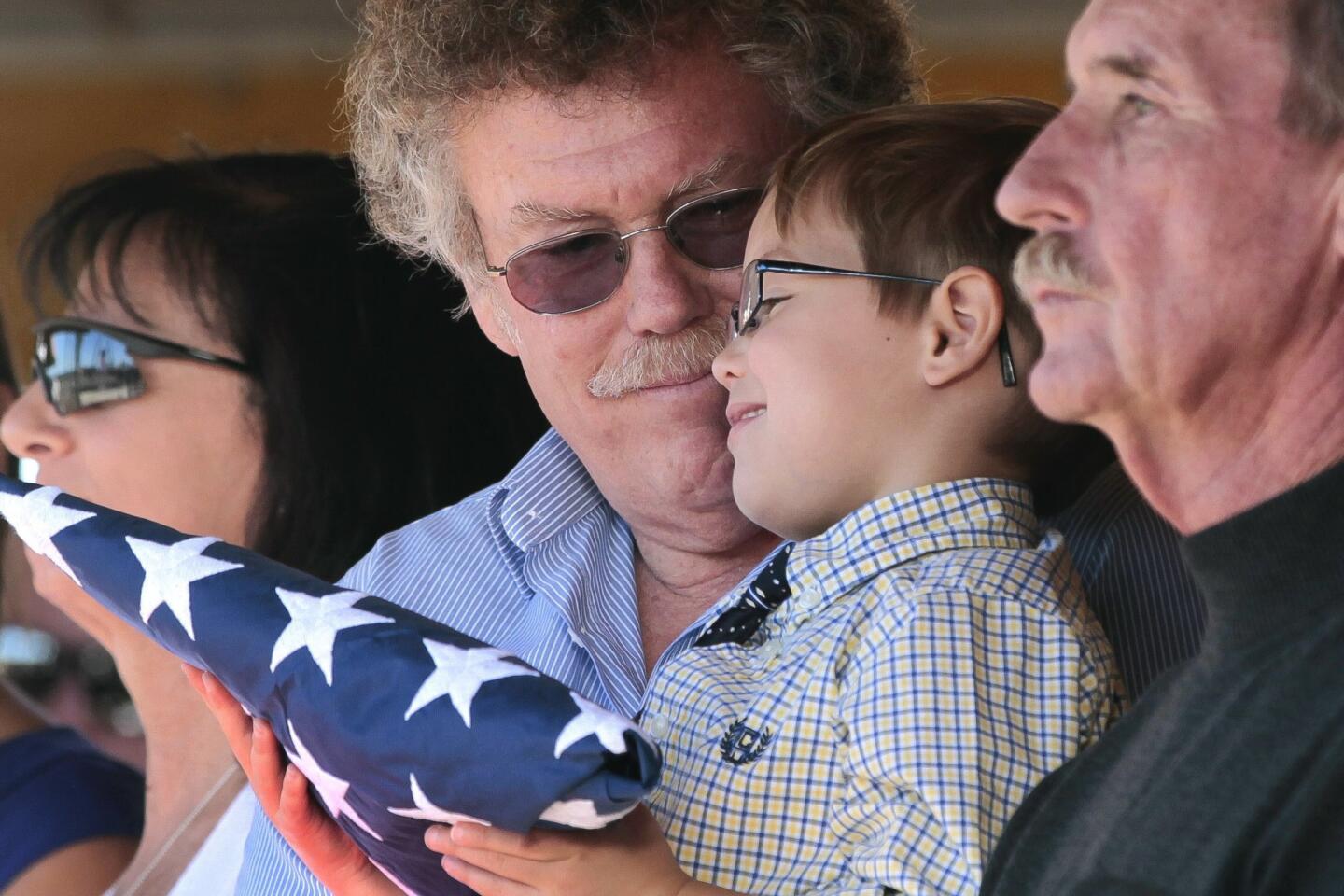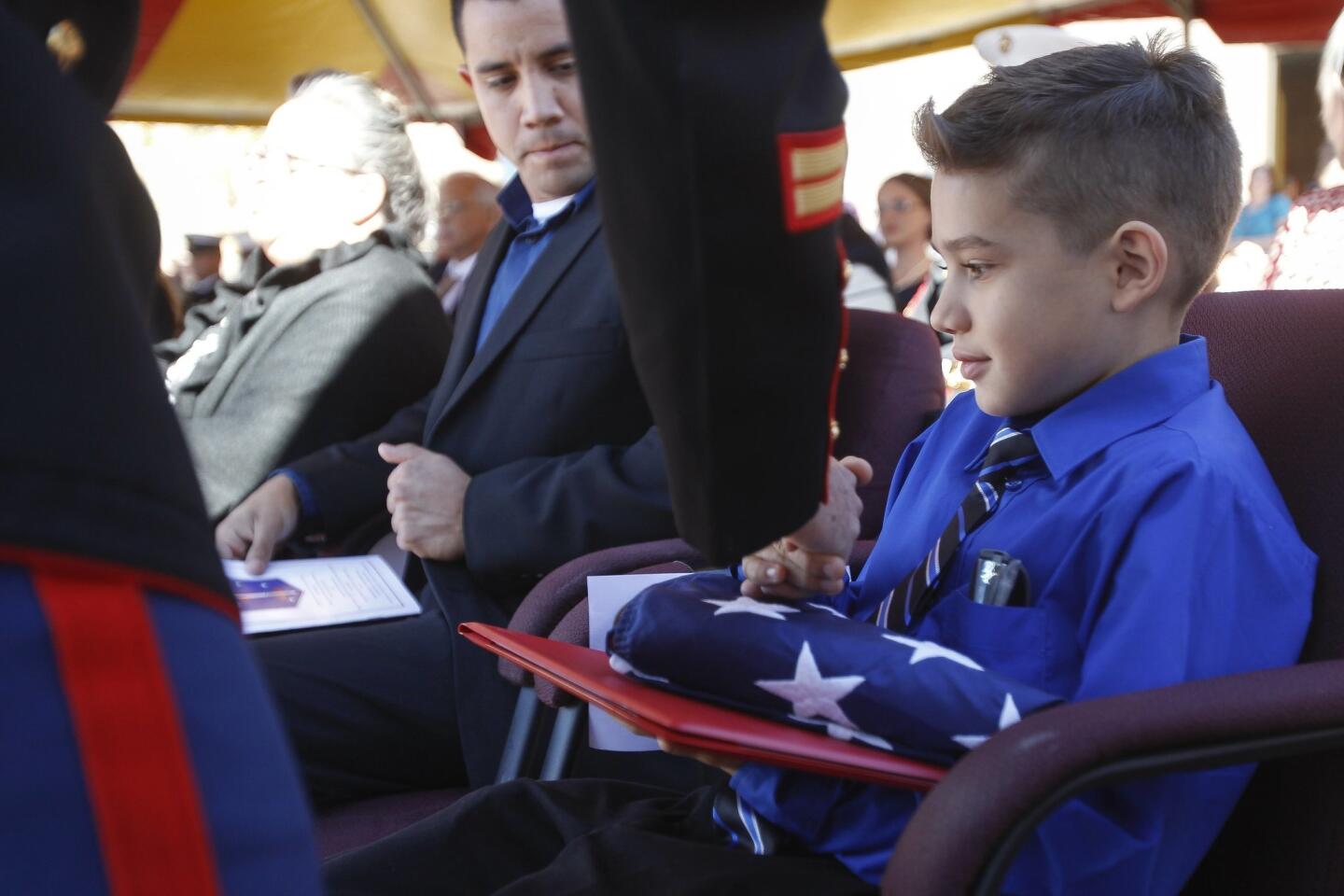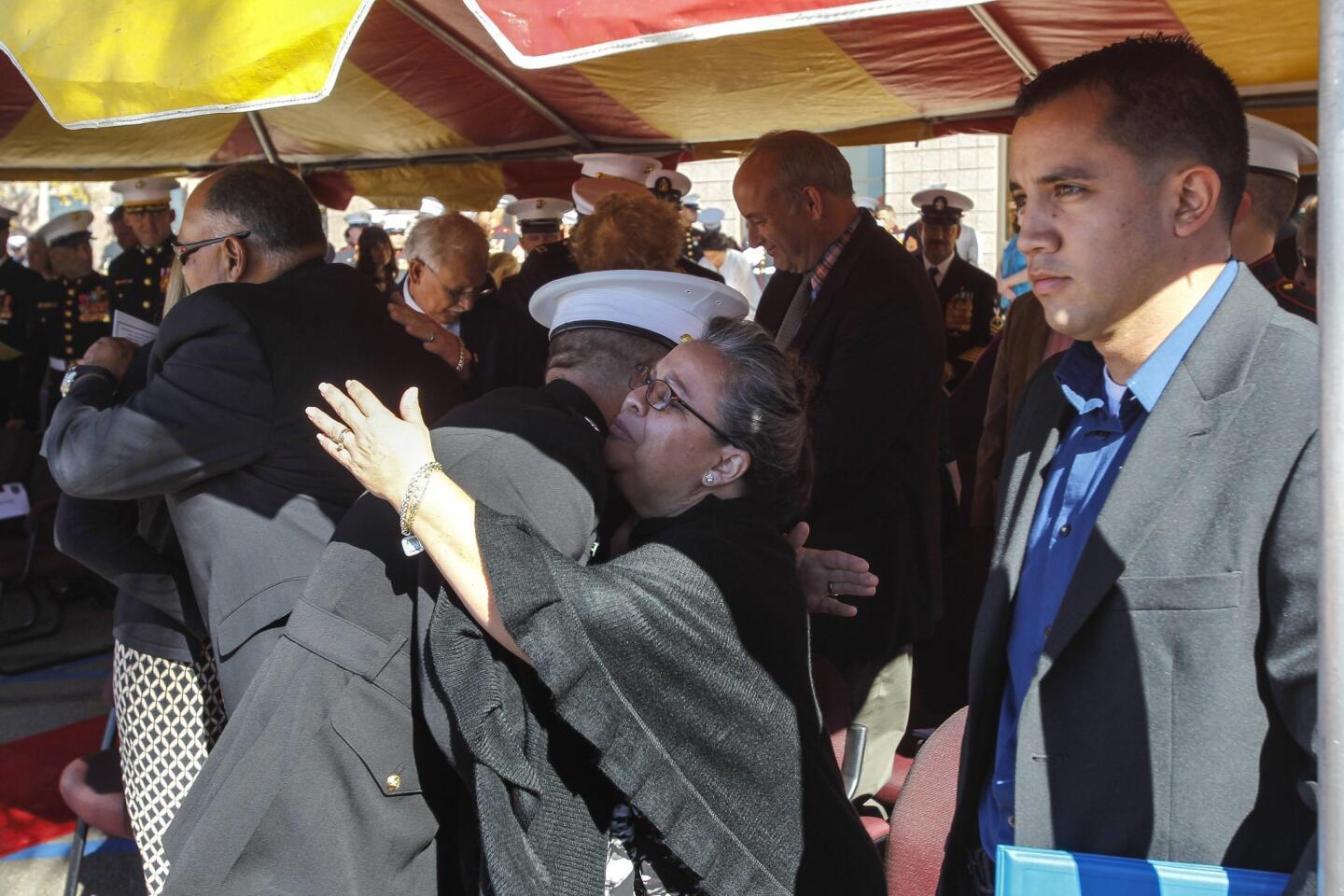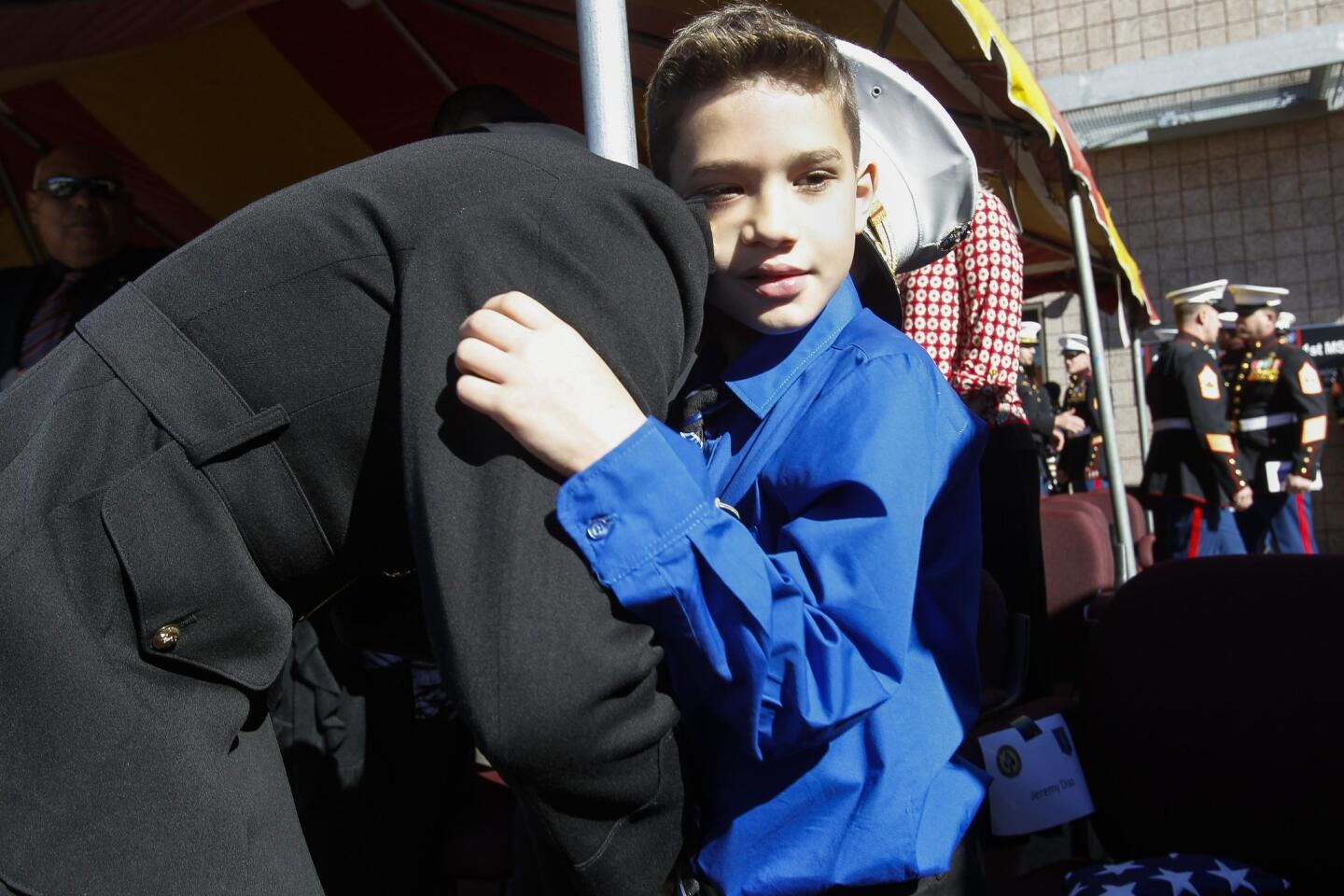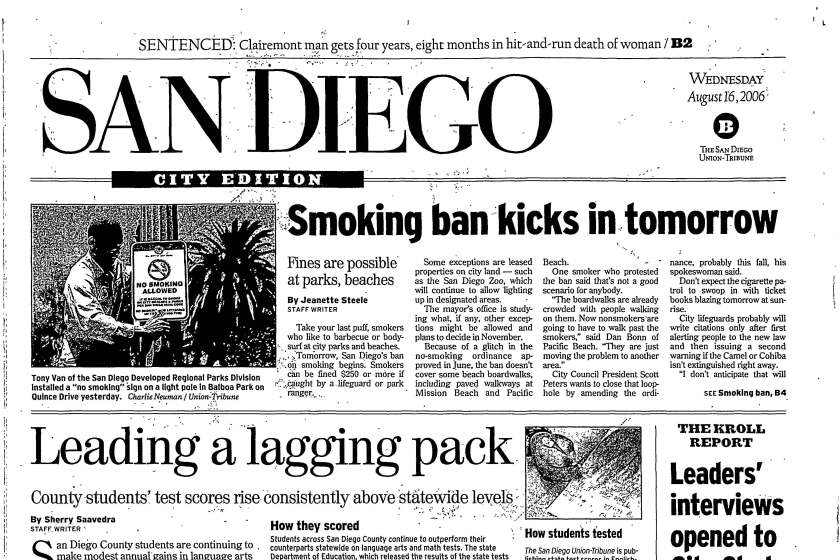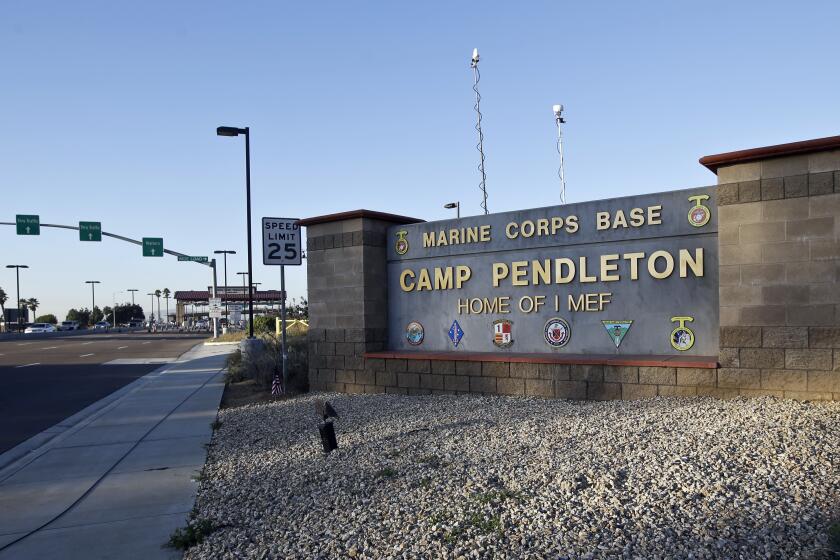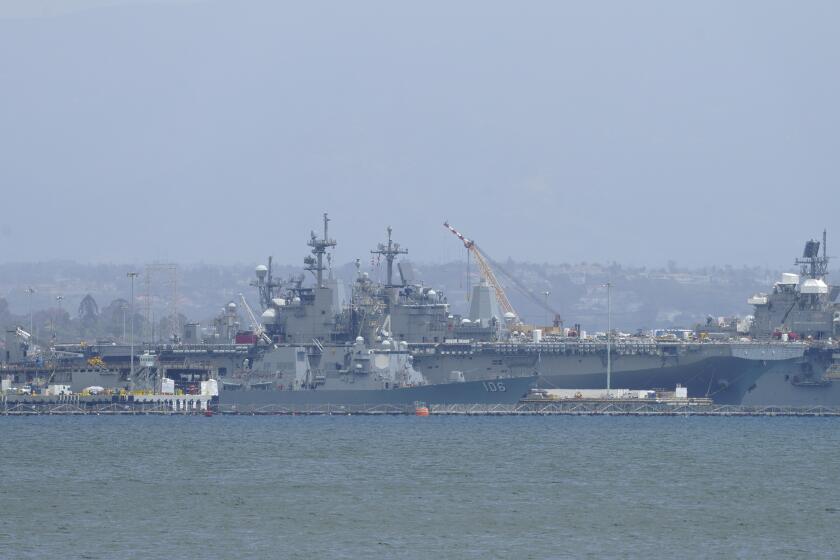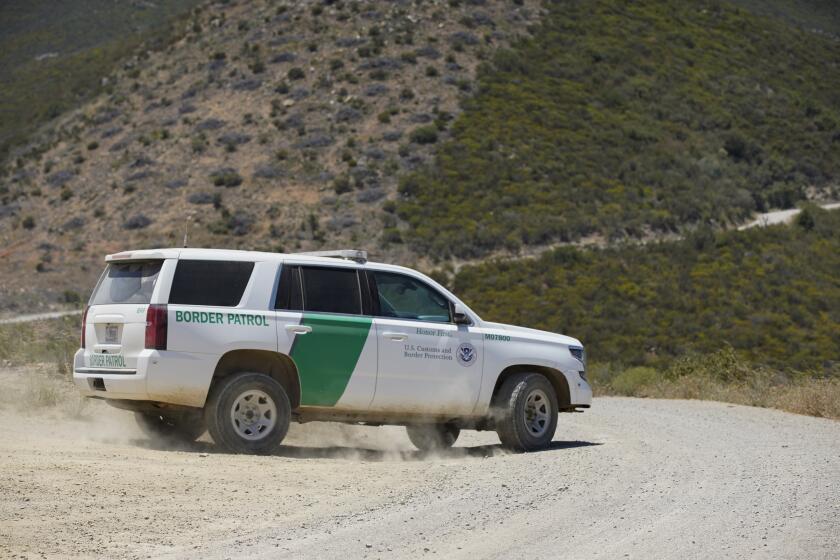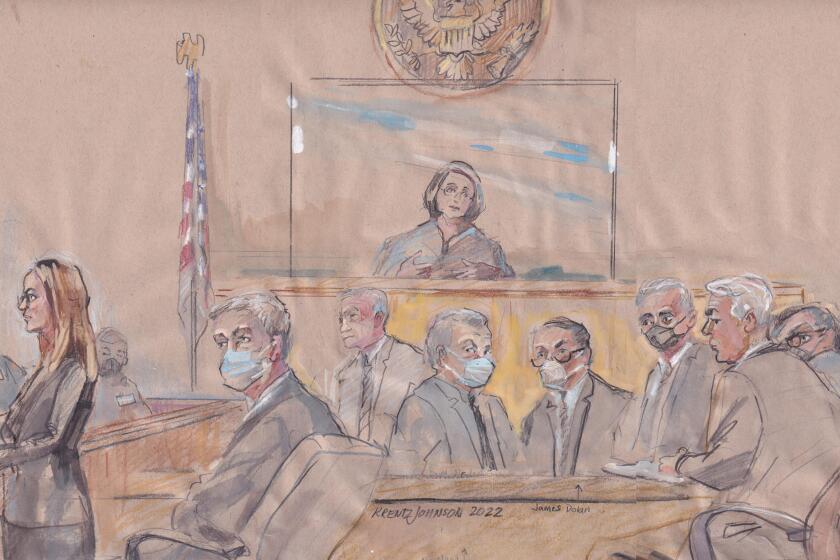Sailor receives Navy Cross
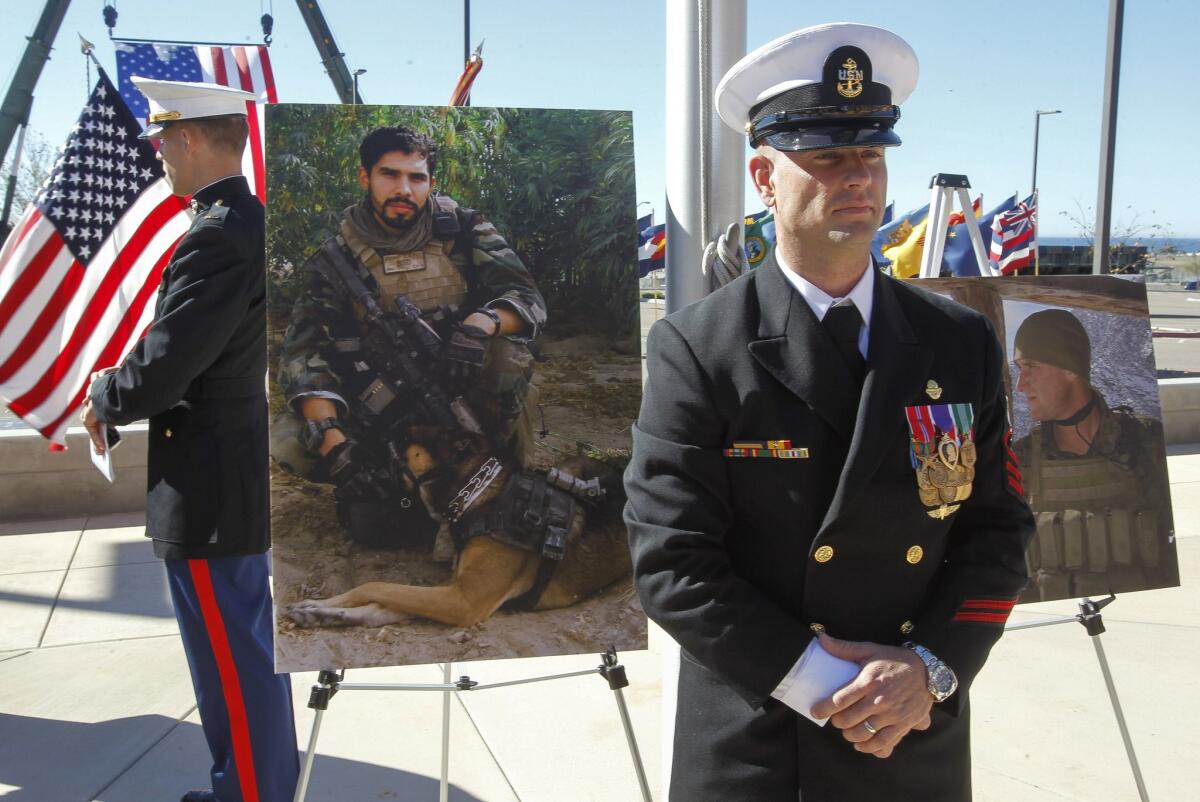
Of course they knew there were bombs.
That’s why the Marine special operations team stopped at the Afghan police checkpoint on Sept. 28, 2011.
Heartbreakingly, that day’s bomb-clearing mission in Helmand Province ended with three dead U.S. servicemen.
And the Navy medical corpsman who risked his life trying to save them now has the bittersweet honor of wearing the nation’s second-highest combat medal for his heroism.
Chief Petty Officer Justin Wilson, 36, was awarded the Navy Cross on Tuesday in a ceremony at Camp Pendleton, home to his 1st Marine Special Operations Battalion.
The Kansas native is the first sailor to be awarded the Navy Cross in the 8-year history of the Marine Corps Special Operations Command.
Wilson said that sometimes he’d like to block out the brutal day when he lost two of his Marines.
But, “I’ve learned that if you do that, you forget. And without remembrance, there’s no honor. You can’t honor these guys for doing what they did,” he told an audience assembled at a base ceremony.
“So I’ll take that any day of the week. And I’ll never forget,” he said.
The Marine Corps on Tuesday also posthumously awarded the Bronze Star with V for valor to Staff Sgt. Nicholas Sprovtsoff, a Marine Corps bomb technician, and Staff Sgt. Christopher Diaz, a military dog handler whose Belgian Malinois was trained to find explosives.
Also killed that day was Spc. James Butz, an Army medic. The 21-year-old soldier also has been awarded a posthumous Bronze Star for his actions.
Photographs of the two fallen Marines sat on easels at the ceremony Tuesday.
Diaz poses with his military dog, Dino. Diaz, a 27-year-old El Paso native described by his family as a fun-loving snappy dresser, enlisted in the Marine Corps in 2003.
Sprovtsoff, 28, looks out over a snow-spattered mountain range. The Michigan native started out life in the Marines in 2001 as an amphibious assault vehicle driver, then trained to become a sought-after explosive ordnance technician.
Their survivors accepted their medals. A Marine in dress uniform handed each family a folded American flag.
Sprovtsoff’s son, 3-year-old Nicholas “Tank,” accepted his father’s flag. For the Diaz family, the staff sergeant’s son, 8-year-old Jeremy, took the flag from the Marine’s hands.
Diaz’s father, Salvador, said that his son didn’t care much about medals.
“But with my son killed in action, medals and memories are all we have left,” said Diaz, a former Marine himself.
“The medal citation is important to us as a family because it gives recognition of what type of Marine he was.”
The Afghan police checkpoint was no bigger than a handball court.
The locals reported that the Taliban had likely buried bombs while the post was unmanned.
Sprovtsoff, the bomb tech, went in alone and located the first one.
His attempt to neutralize it didn’t work, so he went back in.
That’s when the first explosion detonated.
Wilson, the team’s “doc,” didn’t hesitate. He rushed inside the checkpoint to give first aid.
Diaz and Butz also ran to help. Sprovtsoff was still alive.
But as they carried him out, someone stepped on another bomb.
It ended the lives of Butz, Diaz and Sprovtsoff.
Wilson was thrown against the checkpoint’s barriers. His face took shrapnel from the improvised bomb and at least one piece penetrated his chest, severely wounding him.
But the “doc” rose. He had a choice: Save himself. Or, try to save his buddies, not knowing yet whether they were dead or dying.
The sailor said time stopped for him. Everything appeared to move in slow motion. But others who witnessed the scene that day told him that he swooped into action.
Wilson realized there were other bombs.
As Maj. Gen. Joseph Osterman explained Tuesday, the Marines were well schooled that the Taliban’s strategy is to lay a patchwork of homemade explosives to kill U.S. troops who rush to help the first wave of casualties.
So what did Wilson do?
“He just took the risk,” said Osterman, commanding general of the Marines’ special operations branch.
The Navy Cross citation says that Wilson dragged one of the wounded clear of the checkpoint and gave first aid until hope expired. Then he searched for the others in the debris. They had been blown over the barriers and were dead.
Only then did the sailor pay attention to his own wounds, which later landed him in an intensive care unit.
“He didn’t hesitate for a second to run to the sound of the guns,” Osterman told the audience during the medal ceremony.
“(Hero) is a word we tend to use pretty frequently these days, or we have for the last 10 years. There have been a lot of folks who have done heroic things,” he said.
“But I think as you listen to the citations today, these are genuine and true heroes.”
When coalition forces eventually cleared the checkpoint, they found at least seven bombs still lurking beneath the dirt.
Wilson praised his Marines, Diaz and Sprovtsoff. They knew they were putting their lives on the line, too.
“I think everybody knew what was going to happen that day,” Wilson told the audience. “When I made eye-to-eye contact with them, I only saw one thing in their eyes, courage.”
Sprovtsoff’s widow, Tasha, said she purposefully did not pursue the details of her husband’s death. But as the Bronze Star ceremony approached, she realized she would have to find out.
She learned that he survived the initial blast.
“My first thought – and I pride myself (on) actually kind of smiling – was, ‘Huh, it would take two bombs to get rid of Nick Sprovtsoff,’” she told the audience, chuckling a bit.
Tasha Sprovtsoff said her husband was the kind of guy you just had faith in.
“I feel like if he were here today, that’s what he would say. He would say, ‘Yep, I’m a badass.’”
As for the military dog Dino, he is now a Texan.
Diaz’s family adopted the Marine canine when he retired earlier this year.
“You can tell, he still wants to work,” Salvador Diaz said of the 7-year-old pooch.
Wilson faced months of recovery. But he said Tuesday that he is again a whiz at the pull-up bar, despite the injury to his chest.
He plans to reenlist in June.
Get Essential San Diego, weekday mornings
Get top headlines from the Union-Tribune in your inbox weekday mornings, including top news, local, sports, business, entertainment and opinion.
You may occasionally receive promotional content from the San Diego Union-Tribune.
